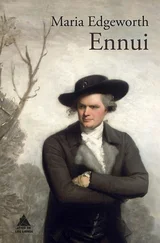Maria Edgeworth - Belinda
Здесь есть возможность читать онлайн «Maria Edgeworth - Belinda» — ознакомительный отрывок электронной книги совершенно бесплатно, а после прочтения отрывка купить полную версию. В некоторых случаях можно слушать аудио, скачать через торрент в формате fb2 и присутствует краткое содержание. Жанр: unrecognised, на английском языке. Описание произведения, (предисловие) а так же отзывы посетителей доступны на портале библиотеки ЛибКат.
- Название:Belinda
- Автор:
- Жанр:
- Год:неизвестен
- ISBN:нет данных
- Рейтинг книги:5 / 5. Голосов: 1
-
Избранное:Добавить в избранное
- Отзывы:
-
Ваша оценка:
- 100
- 1
- 2
- 3
- 4
- 5
Belinda: краткое содержание, описание и аннотация
Предлагаем к чтению аннотацию, описание, краткое содержание или предисловие (зависит от того, что написал сам автор книги «Belinda»). Если вы не нашли необходимую информацию о книге — напишите в комментариях, мы постараемся отыскать её.
Belinda is a young lady who lives with her aunt, Mrs. Stanhope. Being unwed, Belinda is sent to live with Lady Delacour, whom Belinda considers fascinating and charming. Lady Delacour believes herself to be dying of breast cancer. She hides her emotional distress caused by her impending death and poor relationships with her family from Belinda through wit and charm. The first half of the novel is concerned with the blooming friendship between Belinda and Lady Delacour…
Belinda — читать онлайн ознакомительный отрывок
Ниже представлен текст книги, разбитый по страницам. Система сохранения места последней прочитанной страницы, позволяет с удобством читать онлайн бесплатно книгу «Belinda», без необходимости каждый раз заново искать на чём Вы остановились. Поставьте закладку, и сможете в любой момент перейти на страницу, на которой закончили чтение.
Интервал:
Закладка:
“Clarence Hervey!” interrupted Belinda. “Clarence Hervey, my dear,” said Lady Delacour, coolly: “he can do every thing, you know, even drive pigs, better than any body else!—but let me go on.
“Harriot Freke shouted in a stentorian voice, which actually made your pig-driver start: she explained to him in French our distress, and the cause of it, Clarence was, as I suppose you have discovered long ago, ‘that cleverest young man in England who had written on the propriety and necessity of female duelling.’ He answered Harriot in French—‘To attempt your rescue by force would be vain; but I will do better, I will make a diversion in your favour.’ Immediately our hero, addressing himself to the sturdy fellow who held me in custody, exclaimed, ‘Huzza, my boys! Old England for ever! Yonder comes a Frenchman with a flock of turkeys. My pigs will beat them, for a hundred guineas. Old England for ever, huzza!’
“As he spoke, the French officer, with whom Clarence Hervey had laid the wager, appeared at the turn of the lane—his turkeys half flying—half hobbling up the road before him. The Frenchman waved a red streamer over the heads of his flock—Clarence shook a pole, from the top of which hung a bladder full of beans. The pigs grunted, the turkeys gobbled, and the mob shouted: eager for the fame of Old England, the crowd followed Clarence with loud acclamations. The French officer was followed with groans and hisses. So great was the confusion, and so great the zeal of the patriots, that even the pleasure of ducking the female duellists was forgotten in the general enthusiasm. All eyes and all hearts were intent upon the race; and now the turkeys got foremost, and now the pigs. But when we came within sight of the horsepond, I heard one man cry, ‘Don’t forget the ducking.’ How I trembled! but our knight shouted to his followers—‘For the love of Old England, my brave boys, keep between my pigs and the pond:—if our pigs see the water, they’ll run to it, and England’s undone.’
“The whole fury of the mob was by this speech conducted away from us. ‘On, on, my boys, into town, to the market-place: whoever gains the market-place first wins the day.’ Our general shook the rattling bladder in triumph over the heads of ‘the swinish multitude,’ and we followed in perfect security in his train into the town.
“Men, women, and children, crowded to the windows and doors. ‘Retreat into the first place you can,’ whispered Clarence to us: we were close to him. Harriot Freke pushed her way into a milliner’s shop: I could not get in after her, for a frightened pig turned back suddenly, and almost threw me down. Clarence Hervey caught me, and favoured my retreat into the shop. But poor Clarence lost his bet by his gallantry. Whilst he was manoeuvring in my favour, the turkeys got several yards ahead of the pigs, and reaching the market-place first, won the race.
“The French officer found great difficulty in getting safe out of the town; but Clarence represented to the mob that he was a prisoner on his parole, and that it would be unlike Englishmen to insult a prisoner. So he got off without being pelted, and they both returned in safety to the house of General Y——, where they were to dine, and where they entertained a large party of officers with the account of this adventure.
“Mrs. Freke and I rejoiced in our escape, and we thought that the whole business was now over; but in this we were mistaken. The news of our duel, which had spread in the town, raised such an uproar as had never been heard, even at the noisiest election. Would you believe it?—The fate of the election turned upon this duel. The common people, one and all, declared that they would not vote either for Mr. Luttridge or Mr. Freke, because as how —but I need not repeat all the platitudes that they said. In short, neither ribands nor brandy could bring them to reason. With true English pig-headedness, they went every man of them and polled for an independent candidate of their own choosing, whose wife, forsooth, was a proper behaved woman.
“The only thing I had to console me for all this was Clarence Hervey’s opinion that I looked better in man’s clothes than my friend Harriot Freke. Clarence was charmed with my spirit and grace; but he had not leisure at that time to attach himself seriously to me, or to any thing. He was then about nineteen or twenty: he was all vivacity, presumption, and paradox; he was enthusiastic in support of his opinions; but he was at the same time the most candid man in the world, for there was no set of tenets which could be called exclusively his: he adopted in liberal rotation every possible absurdity; and, to do him justice, defended each in its turn with the most ingenious arguments that could be devised, and with a flow of words which charmed the ear, if not the sense. His essay on female duelling was a most extraordinary performance; it was handed about in manuscript till it was worn out; he talked of publishing it, and dedicating it to me. However, this scheme, amongst a million of others, he talked of , but never put into execution. Luckily for him, many of his follies evaporated in words. I saw but little either of him or his follies at this time. All I know about him is, that after he had lost his bet of a hundred guineas, as a pig-driver, by his knight-errantry in rescuing the female duellists from a mob, he wrote a very charming copy of verses upon the occasion; and that he was so much provoked by the stupidity of some of his brother officers who could not understand the verses, that he took a disgust to the army, and sold his commission. He set out upon a tour to the continent, and I returned with Harriot Freke to London, and forgot the existence of such a person as Clarence Hervey for three or four years. Unless people can be of some use, or unless they are actually present, let them be ever so agreeable or meritorious, we are very apt to forget them. One grows strangely selfish by living in the world: ‘tis a perfect cure for romantic notions of gratitude, and love, and so forth. If I had lived in the country in an old manor-house, Clarence Hervey would have doubtless reigned paramount in my imagination as the deliverer of my life, &c. But in London one has no time for thinking of deliverers. And yet what I did with my time I cannot tell you: ‘tis gone, and no trace left. One day after another went I know not how. Had I wept for every day I lost, I’m sure I should have cried my eyes out before this time. If I had enjoyed any amusement in the midst of this dissipation, it would all have been very well; but I declare to you in confidence I have been tired to death. Nothing can be more monotonous than the life of a hackneyed fine lady;—I question whether a dray-horse, or—a horse in a mill, would willingly exchange places with one, if they could know as much of the matter as I do. You are surprised at hearing all this from me. My dear Belinda, how I envy you! You are not yet tired of every thing. The world has still the gloss of novelty for you; but don’t expect that can last above a season. My first winter was certainly entertaining enough. One begins with being charmed with the bustle and glare, and what the French call spectacle ; this is over, I think, in six months. I can but just recollect having been amused at the Theatres, and the Opera, and the Pantheon, and Ranelagh, and all those places, for their own sakes. Soon, very soon, we go out to see people, not things: then we grow tired of seeing people; then we grow tired of being seen by people; and then we go out merely because we can’t stay at home. A dismal story, and a true one. Excuse me for showing you the simple truth; well-dressed falsehood is a personage much more presentable . I am now come to an epoch in my history in which there is a dearth of extraordinary events. What shall I do? Shall I invent? I would if I could; but I cannot. Then I must confess to you that during these last four years I should have died of ennui if I had not been kept alive by my hatred of Mrs. Luttridge and of my husband. I don’t know which I hate most—O, yes, I do—I certainly hate Mrs. Luttridge the most; for a woman can always hate a woman more than she can hate a man, unless she has been in love with him, which I never was with poor Lord Delacour. Yes! I certainly hate Mrs. Luttridge the most; I cannot count the number of extravagant things I have done on purpose to eclipse her. We have had rival routs, rival concerts, rival galas, rival theatres: she has cost me more than she’s worth; but then I certainly have mortified her once a month at least. My hatred to Mrs. Luttridge, my dear, is the remote cause of my love for you; for it was the cause of my intimacy with your aunt Stanhope.—Mrs. Stanhope is really a clever woman—she knows how to turn the hatred of all her friends and acquaintance to her own advantage.—To serve lovers is a thankless office compared with that of serving haters —polite haters I mean. It may be dangerous, for aught I know, to interpose in the quarrels of those who hate their neighbours, not only with all their souls, but with all their strength—the barbarians fight it out, kiss, and are friends. The quarrels which never come to blows are safer for a go-between; but even these are not to be compared to such as never come to words: your true silent hatred is that which lasts for ever. The moment it was known that Mrs. Luttridge and I had come to the resolution never to speak to one another, your aunt Stanhope began to minister to my hatred so, that she made herself quite agreeable. She one winter gave me notice that my adversary had set her heart upon having a magnificent entertainment on a particular day. On that day I determined, of course, to have a rival gala. Mrs. Stanhope’s maid had a lover, a gardener, who lived at Chelsea; and the gardener had an aloe, which was expected soon to blow. Now a plant that blows but once in a hundred years is worth having. The gardener intended to make a public exhibition of it, by which he expected to gain about a hundred guineas. Your aunt Stanhope’s maid got it from him for me for fifty; and I had it whispered about that an aloe in full blow would stand in the middle of one of Lady Delacour’s supper tables. The difficulty was to make Mrs. Luttridge fix upon the very day we wanted; for you know we could not possibly put off the blowing of our aloe. Your aunt Stanhope managed the thing admirably by means of a common friend , who was not a suspected person with the Luttridges; in short, my dear, I gained my point—every body came from Mrs. Luttridge’s to me, or to my aloe. She had a prodigiously fine supper, but scarcely a soul stayed with her; they all came to see what could be seen but once in a hundred years. Now the aloe, you know, is of a cumbersome height for a supper ornament. My saloon luckily has a dome, and under the dome we placed it. Round the huge china vase in which it was planted we placed the most beautiful, or rather the most expensive hothouse plants we could procure. After all, the aloe was an ugly thing; but it answered my purpose—it made Mrs. Luttridge, as I am credibly informed, absolutely weep with vexation. I was excessively obliged to your aunt Stanhope; and I assured her that if ever it were in my power, she might depend upon my gratitude. Pray, when you write, repeat the same thing to her, and tell her that since she has introduced Belinda Portman to me, I am a hundred times more obliged to her than ever I was before.
Читать дальшеИнтервал:
Закладка:
Похожие книги на «Belinda»
Представляем Вашему вниманию похожие книги на «Belinda» списком для выбора. Мы отобрали схожую по названию и смыслу литературу в надежде предоставить читателям больше вариантов отыскать новые, интересные, ещё непрочитанные произведения.
Обсуждение, отзывы о книге «Belinda» и просто собственные мнения читателей. Оставьте ваши комментарии, напишите, что Вы думаете о произведении, его смысле или главных героях. Укажите что конкретно понравилось, а что нет, и почему Вы так считаете.












